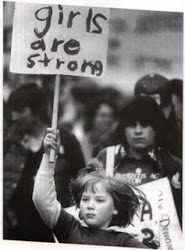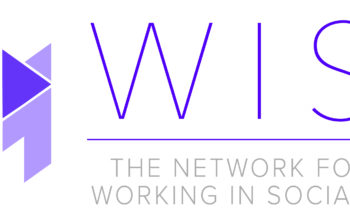This interview is part of our three-part piece on Women in Housing. You can find the background information to these interviews in our ‘Women in Housing: Innovation and Disruption’ introductory piece.
This is the interview conducted between Caroline Duvier and Sinead Butters, CEO of Aspire Housing, talking about women’s role in housing and innovation.

From studying everything to working in housing
Sinead has an interesting path into housing. She graduated from Keele University in 1988, having studied a diverse set of subjects that had nothing to do with maths, so a career into customs and exercise in the civil service seems the obvious choice! However, working on VAT for seven years gave Sinead a way into the Regulator for Social Housing, where she ran a team giving grants to organisations, working on mergers and acquisitions and stock transfers. One of those transfers was Newcastle Housing. After working on this transfer for 12 months, they offered her a job, and six years later, Sinead is running the show there. Sinead calls the move from the Regulator to what is now Aspire Housing ‘working in real housing’.
How do women experience working in housing?
On the question whether women have a different experience working in housing than men, Sinead first points out that women have a different experience in life compared to men, so therefore by extension, they also experience their work differently. However, the experience does not have to be a bad one, if we celebrate diversity, Sinead said.
She has experienced sexism in the past and described how the housing sector is slowly changing from an older white male dominated sector in the 1970s, to more diversity, especially at senior management level, these days. It takes time to work through, she notes, but that it is important to exert no judgement on people. Diversity should be celebrated, not judged upon.
Sinead gave a candid account that as a 5 foot tall woman, she has been in situations where she felt she needed to over-achieve, over-deliver, just to be seen and heard. Ask any marginalised group, Sinead adds, and they will tell you the same thing. It taught her to treat everyone as a respected individual. When you experience sexism, you learn how it feels to be ‘less important’ than others, and this is not an experience she wants anyone she works with to experience.
Opportunities for women in housing
I asked Sinead what she thinks needs to change to create more equal opportunities in the housing sector, and here she rattled off an amazing list of opportunities she has actively implemented in Aspire Housing. These include succession programmes, finding out where the talent in your organisation lies, teasing it out, trying to create diversity from the bottom up, and building confidence and capacity for women and ethnic minorities.
She restructured the top to change its monoculture of white males and she personally mentored people individually at Aspire Housing, and worked on programmes that created opportunities for local talent, i.e from within the organisation. What stuck with me was when Sinead said ‘the policy police won’t arrest you if you push for diversity in your organisation’. Bravery goes a long way.
However, Sinead made clear that change has to happen organically, everyone, from senior managers to directors, to different departments like HR, need to be willing to make these changes work. Importantly, all these different programmes have led to change already. Sinead mentioned two programmes specifically, the Fly High and Aim High programmes. 50% of people on these programmes were promoted, and the top at Aspire Housing has become more diverse.
Sinead talked about succession and how important it is to consider where people go next and having the option to be promoted internally. Specifically talking about women, Sinead mentioned how Aspire Housing helps females get CIH accreditation and has funded MBA programmes to help build talent.
Innovation in Housing
Our conversation moved on to innovation when I asked what Sinead’s interpretation of innovation is. She told the story of how her mentor for the past 12 years – who she talks to every fortnight even though he suffers from neurodegenerative disorder – told her once that an organisational strategy must deliver one of two things: it needs to be better, or it needs to be different. If it does not to either, it is just business as usual. You have to set goals for the future and try new things. Innovation does not need to be technology, Sinead adds, the Fly High, Aim High programmes led to change and she considers them to be innovations.
We moved on to discuss who drives change and innovation in housing, where Sinead said that really, anyone can. She reflected on some of the things she mentioned earlier, such as organisational commitment and strategies, and said that if an organisation gets it right and is truly innovative, then anyone in that organisation can drive change. She added that if you’re not open to change, then it won’t happen. You need cultural engagement in your organisation. Sinead went into a few different players she considers pivotal in driving change, which include board members, tenants, and future strategies that set ways for change.
Doing things differently in the sector
Lastly, we talked about what she is doing differently in the sector. Sinead started off by talking about a consortium she was part of in 2018, called The Future Shape of the Sector. This consortium met 10 years after its initial discussion round in 2008, and she was struck by the bleak outlook given in this consortium. The sessions started out with people being told, you think it is tough now? It will be far, far tougher in the future. We have rising homelessness, a lot of social issues, elderly who age less well, in-work poverty, economic issues, Grenfell, and all these were prior to the Covid pandemic. At the outset, the consortium pushed the message that the housing sector will have to be brilliant at EVERYTHING it does.
This means having talent schemes, listening to tenants what they really want and need, having excellent strategies, fantastic leadership. Sinead said as a response to this consortium, she worked on Aspire’s People First strategy in 2019. The strategy focuses on what she thinks really matters in housing – making decisions in the interest of tenants and the organisation, services delivered in communities, and an energetic, agile workforce. In a world of numbers, it is important to remember that people come first, Sinead says. Finance, while being important, isn’t the reason why housing associations exist, and she feels that is too easily forgotten these days.
I found it sad when Sinead said that if she does not describe the strategy by focusing on financial strength and stability, people regard it as soft, female, not a business strategy. This statement highlighted that we have a lot of work to do, as women, and as professionals in the housing sector, to tear down stereotypes. After all, what is a housing association if not a bunch of people trying to effect positive change? How could a strategy be only focused on the financial well-being of a housing association? We might as well just employ robots if that is the only goal.
Women in housing can learn a lot from people like Sinead. Men in housing can learn a lot from people like Sinead. She is humble and never seems to lose sight of the fact that it is the people that matter, whether that is tenants, staff – everyone. It was a pleasure to speak to Sinead and I hope more people will be able to have that pleasure and learn from Sinead.
Many thanks to Sinead for her time!



